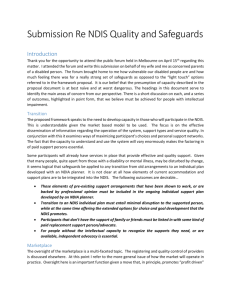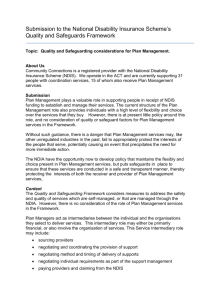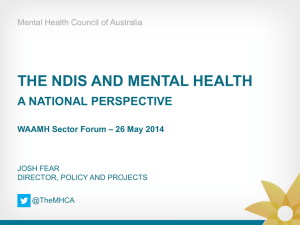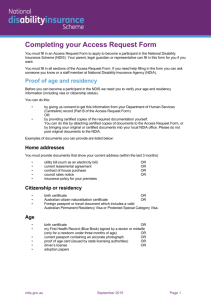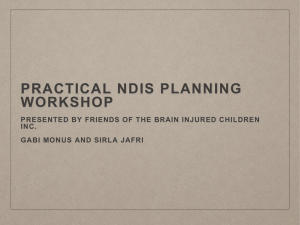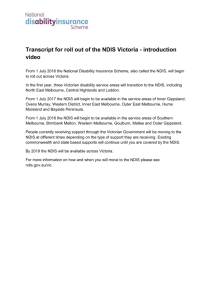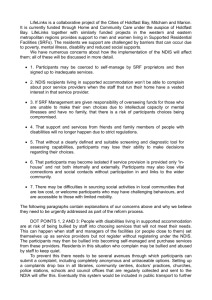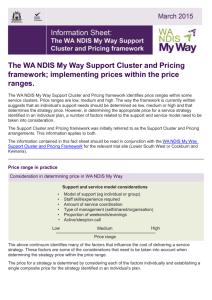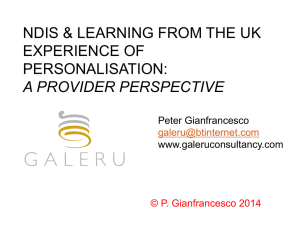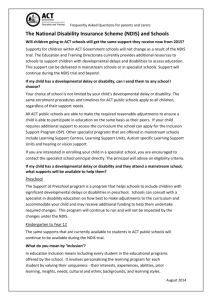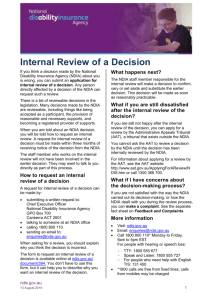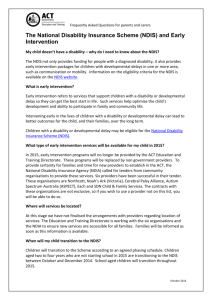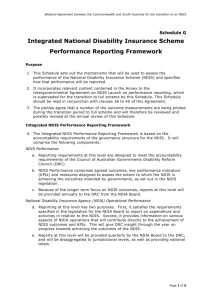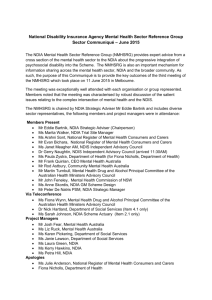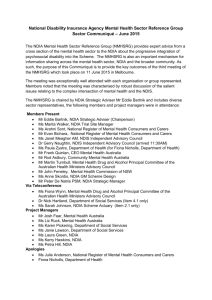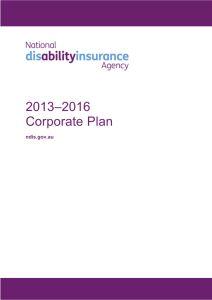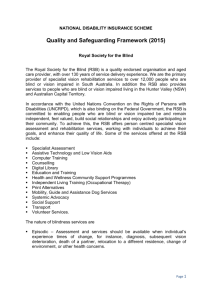DOCX - Engage
advertisement
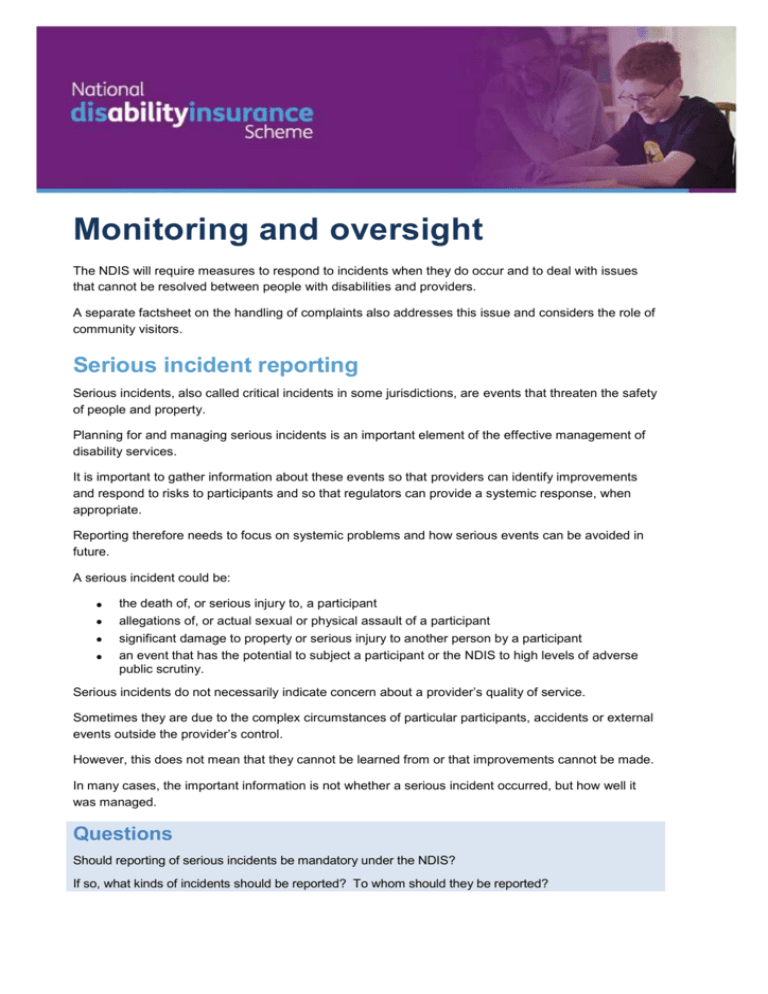
Monitoring and oversight The NDIS will require measures to respond to incidents when they do occur and to deal with issues that cannot be resolved between people with disabilities and providers. A separate factsheet on the handling of complaints also addresses this issue and considers the role of community visitors. Serious incident reporting Serious incidents, also called critical incidents in some jurisdictions, are events that threaten the safety of people and property. Planning for and managing serious incidents is an important element of the effective management of disability services. It is important to gather information about these events so that providers can identify improvements and respond to risks to participants and so that regulators can provide a systemic response, when appropriate. Reporting therefore needs to focus on systemic problems and how serious events can be avoided in future. A serious incident could be: the death of, or serious injury to, a participant allegations of, or actual sexual or physical assault of a participant significant damage to property or serious injury to another person by a participant an event that has the potential to subject a participant or the NDIS to high levels of adverse public scrutiny. Serious incidents do not necessarily indicate concern about a provider’s quality of service. Sometimes they are due to the complex circumstances of particular participants, accidents or external events outside the provider’s control. However, this does not mean that they cannot be learned from or that improvements cannot be made. In many cases, the important information is not whether a serious incident occurred, but how well it was managed. Questions Should reporting of serious incidents be mandatory under the NDIS? If so, what kinds of incidents should be reported? To whom should they be reported? Is there a need for an external oversight body? A key issue for the scheme is whether there is a case for establishing a body with an independent oversight function to provide an additional level of assurance for the NDIS. The National Disability Insurance Agency (NDIA) will oversee operation of the NDIS. It will be responsible for monitoring whether the goals in individual plans have been achieved and will gather information about which supports are most effective. The NDIA also has its own complaints system for participants who are not happy with the NDIA’s service. The NDIA is already subject to external oversight structures, including the Board of the NDIA, the NDIS Independent Advisory Council, the Disability Reform Council (which comprises Australian Government, state and territory ministers), and the scheme actuary. In addition, bodies such as the Administrative Appeals Tribunal, the Commonwealth Privacy Commissioner and the Commonwealth Ombudsman oversee the NDIA’s work. There may also be a case, though, for establishing a body with an independent oversight function to provide an additional level of assurance for the NDIS. A body with an oversight function could have powers to investigate and resolve individual complaints that cannot be resolved with the provider in the first instance. It could also be responsible for considering breaches by providers of the proposed NDIS Code of Conduct (see the fact sheet on NDIA Provider Registration). An oversight body could also play a role, as disability commissioners do now, in providing information, education and training for support providers and people with disabilities about their rights and responsibilities. A further oversight function could involve independent monitoring and assessment of the NDIS market. Market oversight functions could include proactively monitoring, reviewing and reporting on the effectiveness of the NDIS market. For example, this could include trends in demand for particular supports and levels of competition. This function could also include the identification and review of matters such as anti-competitive pricing, thin markets and market failure. These functions would help to ensure participants can be active and empowered consumers within the NDIS market. www.ndis.gov.au 12567 – 2 October 2013 2 Community visitors Currently, community visitor schemes are used in some states and territories to provide general oversight of some types of funded supports. They can also help in raising concerns on behalf of participants who might otherwise be unable or unwilling to make a complaint on their own behalf. Community visitors have a variety of legislative powers, such as the right to enter certain premises and look at records. Questions Should there be an independent oversight body for the NDIS? Why or why not? If so, what powers and responsibilities do you think an oversight body should have? Should there be community visitor schemes in the NDIS and, if so, what should their role be? www.ndis.gov.au 12567 – 2 October 2013 3
